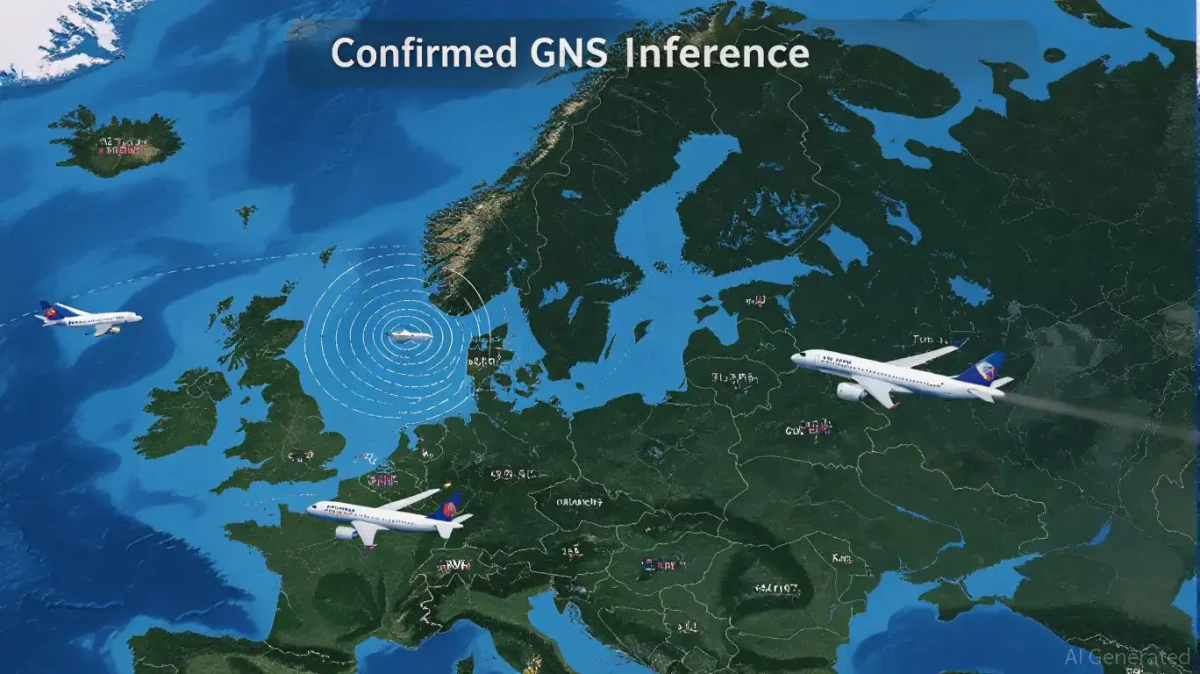In a recent incident, European Commission President Ursula von der Leyen’s aircraft encountered GPS interference while approaching Plovdiv Airport in Bulgaria. This disruption disabled the plane’s navigational systems, forcing pilots to rely on manual navigation using paper maps after circling for about an hour. Bulgarian Air Traffic Services confirmed the significant increase in GPS interference since February 2022, attributing the incident to “blatant interference” likely from Russia.
This occurrence reflects a wider trend of GPS jamming and spoofing activities attributed to Russia in Europe, particularly since the invasion of Ukraine in 2022. Such interference has disrupted both military and civilian operations, affecting flights and maritime activities, especially in the Baltic Sea region. NATO Secretary-General Mark Rutte labeled this interference a part of Russia’s “hybrid threats,” which also encompass sabotage and cyberattacks, warning that advanced Russian missile capabilities could target all of Europe swiftly.
In reaction to these escalating threats, NATO is proactively addressing Russian GPS jamming efforts, assuring that measures are being implemented to prevent future incidents. The alliance is collaborating with EU officials to bolster the resilience of critical infrastructure against electronic warfare tactics.
Additionally, the European Union is enhancing its satellite navigation system, Galileo, to reduce reliance on foreign systems and improve resilience against interference. Ongoing upgrades to the Galileo Reference Centre in the Netherlands aim to strengthen monitoring and signal authentication capabilities. These initiatives form part of a broader strategy to enhance Europe’s technological autonomy and security amid rising electronic warfare threats. The recent GPS interference incidents highlight the urgent need for European nations to develop robust countermeasures to protect critical infrastructure and ensure citizen safety.












Do you think Russias GPS disruption is a strategic move or just a technical glitch? Lets discuss! 🤔🌍 #GeoPolitics #TechIssues
Is Russias GPS disruption a strategic move or just a technical glitch? Lets discuss the implications over coffee ☕️
I wonder if Russias GPS disruption is a strategic move or just a tech glitch. Its like playing a real-life game of hide and seek!
I wonder if Russias disruption of GPS signals is a strategic move or just a technological hiccup. Whats your take?
Wow, Russia messing with GPS signals in Europe? Are we living in a real-life spy movie or what? Crazy times were in!
Wow, Russia messing with GPS in Europe? Is this the plot of a new spy movie or are we living in one? Crazy stuff!
Do you think Russias GPS disruptions are a serious threat or just a minor inconvenience? Im curious to hear your thoughts!